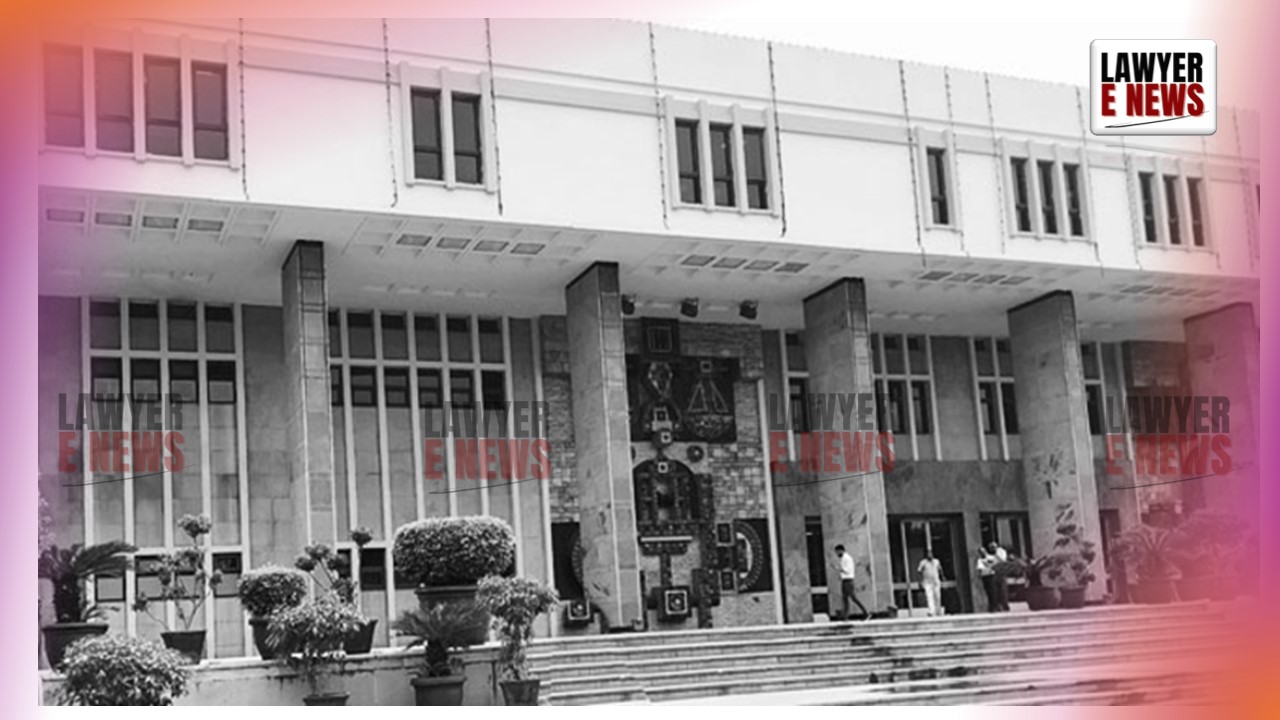-
by Admin
15 February 2026 5:01 PM



In a significant ruling Delhi High Court upheld Saregama India Limited's copyright ownership over the iconic Tamil song ‘En Iniya Pon Nilave’ from the 1980 film ‘Moodu Pani’. The court held that under Section 17(b) of the Copyright Act, 1957, the producer of a cinematograph film is the first owner of the soundtrack, including musical and literary works, unless expressly agreed otherwise. Since the original producer had assigned the rights to Saregama in 1980, the court ruled in favor of the plaintiff’s copyright claim.
However, balancing commercial interests, the court permitted Defendant No. 1 (Vels Film International Ltd.) to use the song in its upcoming film ‘Aghathiyaa’ upon depositing ₹30 lakh with the Registrar General within two days. If the amount was not deposited, an injunction would be enforced.
Saregama India Ltd. filed a commercial copyright infringement suit against Vels Film International Ltd. and the film’s music composer, alleging that the defendants had illegally recreated and published a fresh version of ‘En Iniya Pon Nilave’ in their upcoming film ‘Aghathiyaa’.
The plaintiff’s claim was based on an assignment agreement dated February 25, 1980, wherein Raja Cine Arts (producer of ‘Moodu Pani’) assigned the copyright in all musical and literary works of the film’s soundtrack to Saregama (formerly The Gramophone Company of India Ltd.).
Upon discovering that Vels Film International Ltd. had used the song in their film without authorization, Saregama issued a cease-and-desist notice on January 10, 2025. However, despite this, the defendants continued to exploit the song on various platforms, leading Saregama to seek an injunction and damages for copyright infringement.
The defendants contended that the music composer (Defendant No. 3) retained independent copyright over the song under Sections 13(4) and 14(1)(a) of the Copyright Act. They further argued that the new version was an ‘adaptation’ rather than reproduction, claiming they had a valid license from the music composer.
The primary issue before the court was whether the music composer retained rights over the song despite it being part of a cinematograph film.
The High Court ruled that under Section 17(b) of the Copyright Act, the producer of a cinematograph film is the first owner of the soundtrack, including musical and literary works, unless a contract states otherwise. Since Raja Cine Arts had assigned these rights to Saregama in 1980, Saregama remained the rightful owner.
The court cited the Supreme Court ruling in Indian Performing Rights Society Ltd. v. Eastern Indian Motion Pictures Association, (1977) 2 SCC 820, stating: "When a cinematograph film producer commissions a composer of music for valuable consideration for the purpose of making his cinematograph film… the producer of the film becomes the first owner of the copyright therein unless there is a contract to the contrary."
Thus, the court rejected Defendant No. 3’s claim of independent ownership, ruling that: "The music composer, having consented to the use of his work in the film ‘Moodu Pani,’ exhausted his rights under Section 14(1)(a)(v) of the Copyright Act. He cannot now claim an independent right over the song outside the cinematograph film."
Does Section 13(4) Protect the Music Composer’s Separate Copyright?
Defendant No. 3 relied on Section 13(4), which states that copyright in a cinematograph film does not affect the separate copyright in the underlying musical work.
The court clarified that while Section 13(4) protects a composer’s separate copyright, it does not override Section 17(b), which grants the film producer primary ownership unless agreed otherwise.
"The composer retains rights over the musical work outside the cinematograph film, but he cannot authorize a new reproduction of the song for another film without the producer’s consent."
Thus, the court held that Defendant No. 3 had no right to grant a license to Defendant No. 1 for using the song in ‘Aghathiyaa’.
Is the Defendants' Version of the Song an ‘Adaptation’ or ‘Reproduction’?
The defendants argued that their version of ‘En Iniya Pon Nilave’ was an ‘adaptation’ under Section 14(1)(a)(vi) of the Copyright Act rather than a direct reproduction.
The court rejected this argument, holding that: "Adaptation requires significant modification of the work. Here, the defendants copied both the lyrics and musical composition, making it a reproduction, not an adaptation."
Thus, the defendants violated Saregama’s copyright by using the song without authorization.
Should an Immediate Injunction Be Granted Against the Defendants?
Since ‘Aghathiyaa’ was scheduled for release on January 31, 2025, Defendant No. 1 argued that an injunction would cause irreparable loss.
The court acknowledged this concern, ruling that: "Balance of convenience lies in favor of Defendant No. 1. However, they cannot use the song without compensating the plaintiff."
Thus, the court permitted Defendant No. 1 to use the song upon depositing ₹30 lakh with the Registrar General within two days.
If the amount was not deposited, an immediate injunction would be enforced.
The Delhi High Court upheld Saregama’s copyright ownership over ‘En Iniya Pon Nilave’, reaffirming that:
A film producer is the first owner of the soundtrack, including musical and literary works, unless a contract states otherwise.
The music composer cannot assign rights to another party without the producer’s consent.
Recreating a song with the same lyrics and composition constitutes reproduction, not adaptation.
Balance of convenience allows the defendants to use the song upon depositing ₹30 lakh within two days.
This ruling reinforces strong copyright protections for music labels and film producers, ensuring that intellectual property rights are not diluted by post-facto claims from composers.
Date of Decision: January 30, 2025
